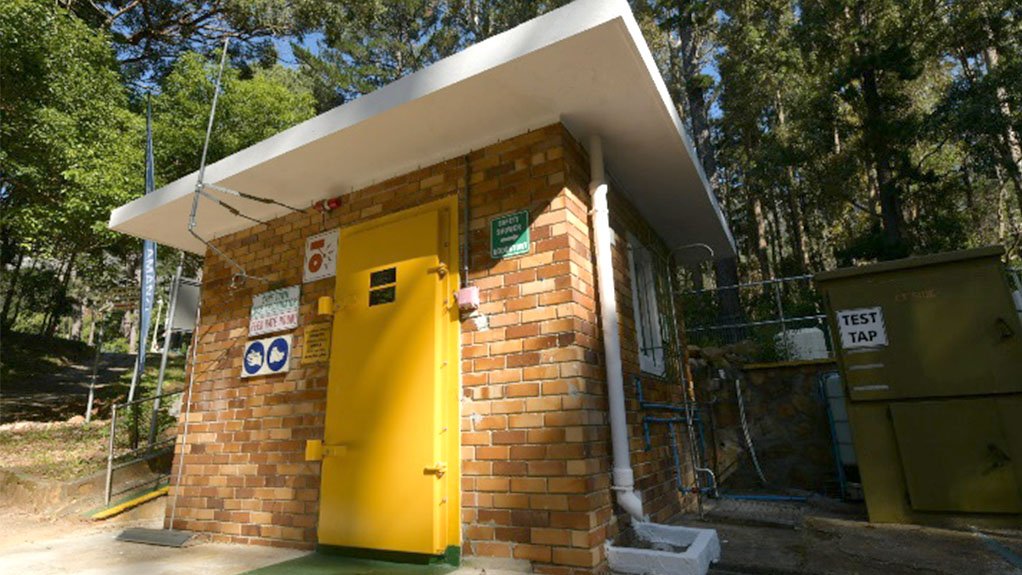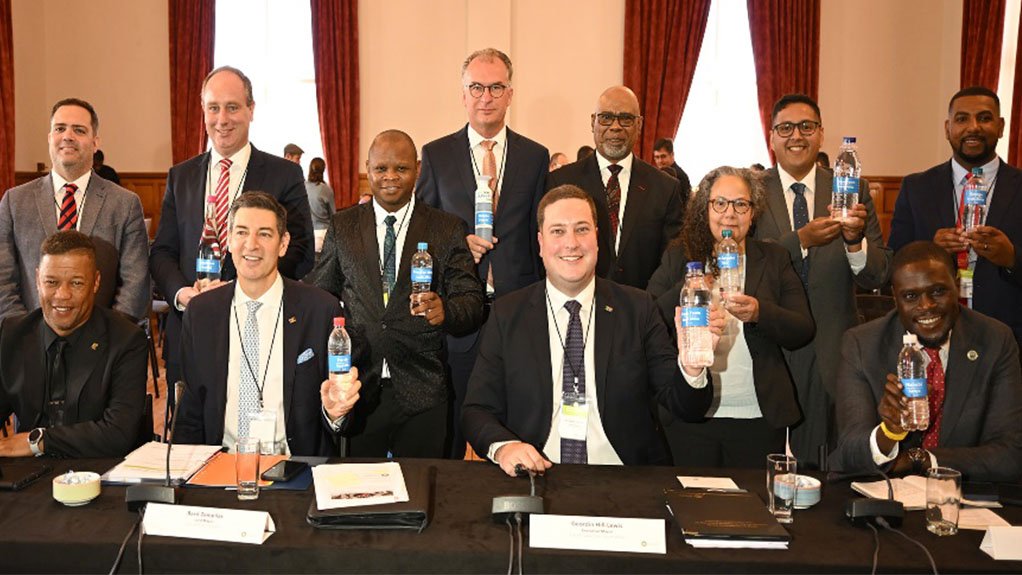Water reuse increases potable water supply



INCREASING POTABILITY The refurbished chlorination plant will aid in maintaining water quality, ensuring that the water remains potable and meets the relevant health and safety requirements.
Photo by City of Cape Town
SHARING EXPERIENCES The City’s International Water Re-use Conversation hosted mayors and officials from several cities across the world, to share their experiences with water reuse
Photo by City of Cape Town
Water reuse will add about 7% to Cape Town’s total bulk potable water supply by 2040 as part of Cape Town’s Water Strategy. The programme aims to add 300-million litres of water a day from new sources by 2030, including water reuse, seawater desalination, and groundwater extraction from two major aquifers.
On November 29, 2023, Cape Town mayor Geordin Hill-Lewis opened the city’s International Water Reuse Conversation with mayors and officials from several cities across the world attending to share their experiences, including representatives from Perth, Nairobi, Los Angeles, Wulpen, Windhoek, Beaufort West and George.
Hill-Lewis expressed excitement for the City of Cape Town to be joining other cities around the world that have already implemented water reuse for long-term sustainability, with some cities having established reuse solutions over half a century ago.
He explained that there are plans to build a “state-of-the-art” water scheme at the Faure water treatment plant and reservoir, and that the treated wastewater will be sourced from the upgraded Zandvliet Wastewater Treatment Works, further purifying the water to drinking standards through a multi-barrier purification process.
“The water will then be blended with dam water to augment the water that feeds the existing Faure water treatment plant, and fed into the City’s water supply across all areas,” noted Hill-Lewis.
He elaborated that, as part of the preparation for this project, the city operated a water reuse demonstration plant for two years at the Zandvliet Wastewater Treatment Works.
Hill-Lewis added that the water quality was “exceptional”, and that the demonstration plant provided learning opportunities around the protocols and processes that provided “great value” as they mapped out the development of the full-scale Faure New Water Scheme.
Water and Sanitation MMC Councillor Zahid Badroodien stated that Cape Town’s drought highlighted the urgent need for robust planning given the demands of rapid urbanisation and climate uncertainty.
“While our dams and systems are designed for a 98% level of supply assurance, the three-year drought was a one-in-590-year event. Embracing the uncertainties of climate change, we must plan for the unknown, ensuring the resilience of our water sources,” explained Badroodien.
He emphasised that it is time for a new way of thinking about water, commenting that “there is no ‘wastewater’, only wasted water”.
Badroodien explained that the goal is to make Cape Town a “world-class city of hope” for all residents, with water being the key to growth and long-term sustainability, and securing its water future will get them there.
Upgrading of Chlorination Plants
The City’s Water and Sanitation Directorate invested R2.1-million towards the refurbishment of three chlorination plants at the Newlands reservoir in three months, including safety enhancements and technological advancements in the process to help to maintain water quality and ensure that Cape Town’s tap water remains safe to drink and use.
The Newlands Reservoir is one of Cape Town’s oldest reservoirs, able to hold 132.6-million litres of water, and supplies water to Wynberg Reservoir, Bishopscourt, Hout Bay, Llandudno and Newlands, among others.
The chlorination plants were in need of refurbishment and are a part of the city’s infrastructure maintenance, ensuring the continuation of the city’s commitment to meet occupational health and safety requirements, with new injector systems installed as well as new and improved safety features.
“Any upgrades to our water infrastruc- ture are of the utmost importance to reassure residents of the city’s diligence in providing safe, quality drinking water. It is also aligned with our commitment to provide clean, reliable drinking water to all residents, as described in the city’s water strategy,” said Badroodien.
Article Enquiry
Email Article
Save Article
Feedback
To advertise email advertising@creamermedia.co.za or click here
Press Office
Announcements
What's On
Subscribe to improve your user experience...
Option 1 (equivalent of R125 a month):
Receive a weekly copy of Creamer Media's Engineering News & Mining Weekly magazine
(print copy for those in South Africa and e-magazine for those outside of South Africa)
Receive daily email newsletters
Access to full search results
Access archive of magazine back copies
Access to Projects in Progress
Access to ONE Research Report of your choice in PDF format
Option 2 (equivalent of R375 a month):
All benefits from Option 1
PLUS
Access to Creamer Media's Research Channel Africa for ALL Research Reports, in PDF format, on various industrial and mining sectors
including Electricity; Water; Energy Transition; Hydrogen; Roads, Rail and Ports; Coal; Gold; Platinum; Battery Metals; etc.
Already a subscriber?
Forgotten your password?
Receive weekly copy of Creamer Media's Engineering News & Mining Weekly magazine (print copy for those in South Africa and e-magazine for those outside of South Africa)
➕
Recieve daily email newsletters
➕
Access to full search results
➕
Access archive of magazine back copies
➕
Access to Projects in Progress
➕
Access to ONE Research Report of your choice in PDF format
RESEARCH CHANNEL AFRICA
R4500 (equivalent of R375 a month)
SUBSCRIBEAll benefits from Option 1
➕
Access to Creamer Media's Research Channel Africa for ALL Research Reports on various industrial and mining sectors, in PDF format, including on:
Electricity
➕
Water
➕
Energy Transition
➕
Hydrogen
➕
Roads, Rail and Ports
➕
Coal
➕
Gold
➕
Platinum
➕
Battery Metals
➕
etc.
Receive all benefits from Option 1 or Option 2 delivered to numerous people at your company
➕
Multiple User names and Passwords for simultaneous log-ins
➕
Intranet integration access to all in your organisation




















